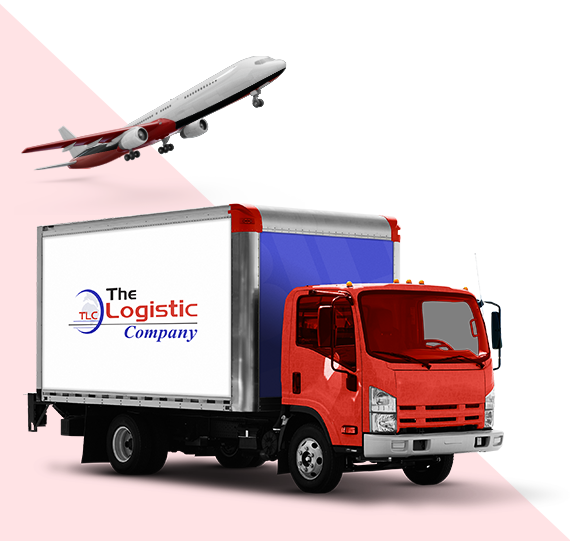Views: 21
How To Start a Profitable Logistics Business in Nigeria Today

The logistics industry in Nigeria is rapidly expanding, driven by the rise of e-commerce, increasing demand for fast deliveries, and the country’s growing population. From courier services to haulage and last-mile delivery, logistics has become one of the most profitable business opportunities for entrepreneurs. If you’ve ever wondered how to start a logistics business in Nigeria and succeed, now is the perfect time. With the right planning, investment, and strategy, you can tap into this thriving sector and build a sustainable income stream. In this guide, we’ll explore the key steps, startup requirements, challenges, and proven tips to help you launch and grow a profitable logistics company in Nigeria today.
Overview
Let’s take a look at the logistics business in Nigeria. More Nigerians are getting used to using the internet and doing online shopping, so e-commerce is growing fast. The logistics business in Nigeria supports e-commerce because items bought online need to be delivered to customers. This makes logistics a strong and profitable business idea.
However, if you don’t have the right knowledge to properly set up a logistics business in Nigeria, you could lose your investment. Many logistics business owners in Nigeria are putting a lot of money into e-commerce, and as technology advances, they need reliable logistics companies to partner with. From what we’ve seen in the news, poor logistics can cause e-commerce businesses to fail.
To succeed in the logistics business, you need to understand all parts of the business and provide excellent service. In this article, you will learn how to start and run a successful logistics business.
What is a Logistics Business?
A logistics company handles planning, carrying out, and managing the movement and storage of goods, services, or information within a supply chain, from where they start to where they are used. The idea of logistics began with the military. For example, in World War I and II, logistics helped move food, weapons, and other supplies quickly. After the wars, logistics became a real business, and people began to explore it. Over time, many companies have started and grown into leaders in the industry.
Logistics also includes things like warehousing, transportation, inventory, packaging, material handling, and security in the business world.
Is the Logistics Business Profitable In Nigeria?
A key concern for anyone starting a business is whether it will be profitable. The profitability of a logistics business in Nigeria depends on how many customers you can get, your pricing, and how fast and reliably your deliveries are. You can make good profits if you have a strong plan for reaching the market and keeping customers. As long as e-commerce continues to grow, logistics will stay important and profitable. If you understand how the business works, you can make millions in logistics.
For example, if you have 30 businesses using your service and each sends out 100 items per month, you will make 3,000 deliveries by the end of the month. This shows how important it is to keep customers coming back. In short, the logistics business in Nigeria can be very profitable if you do it right.
Equipment Needed to Run a Logistics Business
You will need a bus or truck, a cargo bike, and a place to park them. You also need a mobile phone, a computer, dispatch boxes, stationery, and other supplies.
Step-by-Step Guide to Start Your Logistics Business
- Define Your Mode of Operation
The first step to starting a logistics business in Nigeria is choosing your delivery method. Will you use bikes, buses, or trucks? Will you handle interstate or local deliveries? Are you going to focus on a specific industry or sector? Will you start as an agent, transporter, or contractor? You need to answer these questions before starting. Deciding how you will operate will help you figure out how much capital you need and keep you focused, since there are many types of logistics.
If you don’t have enough money to buy buses or bikes and start a full logistics company, you can begin as an agent or contractor. Starting as an agent means you act as a middleman between an established logistics company and businesses needing deliveries. You’ll earn a good commission for every customer you bring to the logistics company.
- Have a Business Plan

A business plan is a detailed document that outlines the goals of your business and how you plan to achieve them. After figuring out what you need to do to set up your business, it’s important to write everything down. Having a business plan can help you get funding.
If you can’t write your own business plan, you can send an email to get help with it. You can also have a consulting session and leave with a one-page business plan if you don’t need a full one.
- Register Your Business

The Corporate Affairs Commission (CAC) is the official body for registering businesses in Nigeria. Registering your business helps build trust with customers, and it also allows you to open a corporate account using your business name or as a limited liability company.
You can register as a business name, limited liability company, or partnership.
- Funding

You need money to buy the right equipment and to pay your workers. The amount you need depends on how big you want your business to be. In fact, with as little as ₦500,000, you can start a small logistics business in Nigeria. Having a business plan can also help you apply for loans from banks or get business grants. If you want to attract investors or venture capitalists, you will need a strong business plan.
Once you get the funding, you can buy the equipment. If you’re in an area with heavy traffic, investing in bikes might be a smart choice. Make sure to check local laws so your transportation methods don’t break any rules. Also, buying well-maintained used vehicles or bikes can help lower your startup costs.
- Set up a website.

A logistics business must have a website. Your website will serve as an intermediary between you and your customers. If anyone wants to learn about your business, they can easily visit your website, get the information they need, and contact you directly.
- Get an office space:

A logistics business is both an online and offline business. Some customers will prefer to visit your office to send their deliveries, so you need to get an office space where you can also park your vehicles and bikes. Also, brand your office and vehicle to create awareness and attract your target market. The office space must be spacious, and the compound large enough to accommodate your cars and bikes.
- Hire staff for your logistics business:
In the logistics business, drivers or riders are very important, so it’s crucial to carefully select and train them. It’s a good idea to start as your own driver or rider to learn the routes and understand how the business works. This gives you direct experience with daily operations. While you may not be able to do all the driving or riding yourself, especially as the business grows, understanding the process will help you create better strategies and communicate effectively with your drivers and riders.
Everyone you hire should learn your company’s culture, act in a way that protects your reputation, and be polite to clients. As your business grows, you can hire more drivers, but this process should always be taken seriously. Besides drivers, you’ll also need staff to handle customers at your office. Training your drivers and staff regularly is essential because their actions directly impact the growth of your business, especially the drivers.
- Market your business:

Promote your business confidently. If you don’t market your business, nobody will know about it. So, advertise your logistics business both online and offline. Reach out to e-commerce business owners and local organizations. Luckily, marketing is easier now because of the internet. Here are some ways you can promote your business: word of mouth, referrals, social media ads, newspaper ads, Google ads, and partnerships. There are many other ways to advertise your business, too.
Challenges In Starting A Logistics Company In Nigeria
There will always be challenges in any business. Every business faces difficulties, and knowing about these challenges is the first step to overcoming them. Here are some challenges you might encounter in starting up a logistics business in Nigeria.
Some customers may not know exactly what they want or might change their minds about a purchase. This can lead them to ignore your calls or texts when you arrive, wasting your time. Another challenge is returns. Some clients might claim that the item you delivered isn’t what they ordered and ask for a return. It’s important to be aware of these challenges so you can find ways to deal with them.
Conclusion
You can start a logistics business in Nigeria if you are passionate about it. For every business we talk about, nothing is guaranteed. You need to do your research, put in the effort, and stay determined. Success takes time, and we don’t support get-rich-quick schemes. If you want to succeed, you have to work hard, and that’s the message we share.
By kingkentus








You must be logged in to post a comment.